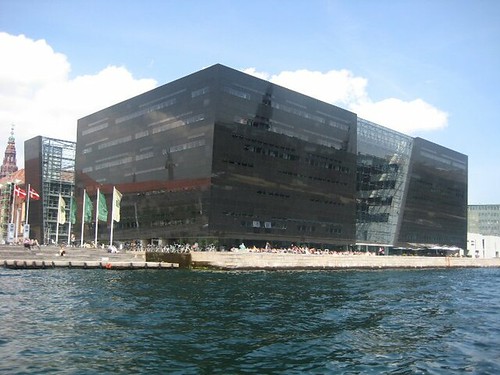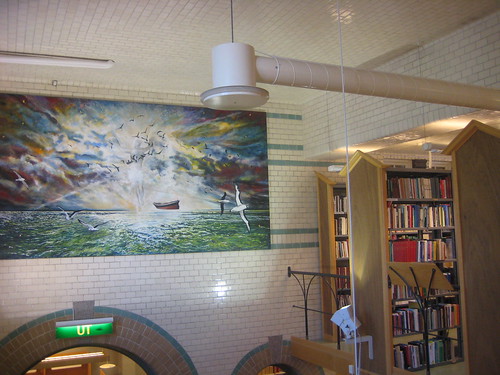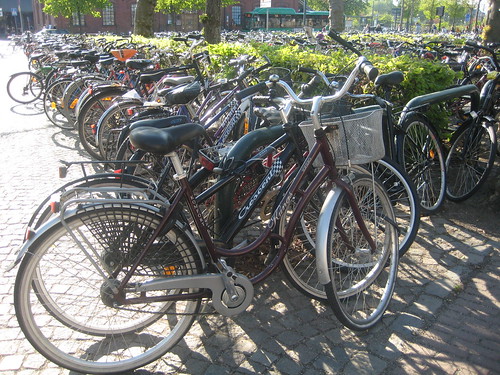The event kicked off with a presentation by Andrew Walsh (University of Huddersfield). He began by asking us to make sure our mobiles were switched ON and said he was happy for people to be tweeting, blogging, facebooking, etc, while he spoke. This was appropriate given the topic of his talk - phones, slates, netbooks and desktop computers: information use across devices. Of course, many libraries have embraced mobile technologies but how many are thinking about their actual impact on our academic community? Andrew emphasised the importance of context when people are searching for information on their mobile phones, as well as the fact that people will choose the easiest tool (an app) rather than the most appropriate. People are therefore using a narrower range of tools than if they were searching on a different device, such as a laptop. Time spent searching is also much less because people want the information then and there. Sites like Twitter bring the information to you, so searching becomes passive. This can mean that we get overwhelmed by the amount of information we are being fed.
After Andrew's talk, we had a choice of three workshops. I attended one about digital identity, provided by Scott Hibberson and Kevin Campbell-Wright. It was a very entertaining session as they'd devised a scenario of how social media can have good and bad consequences, even if you're not actually on any of the sites. Several participants took on the roles and played out the scenario, which began with a leaving party where a couple of the characters got a bit carried away and then followed the repercussions following this. It made you consider the importance of managing your digital identity.
In the next workshop, making it mobile, we got to have a play on different devices, such as the iPad and Samsung Galaxy tab. We also considered the various uses for these in our workplaces. One app I especially liked was called String, for augmented reality. Basically, you scan a picture and an animation appears. My favourite was the dragon!
After an excellent lunch, we were treated to the first presentation about a new curriculum for information literacy (ANCIL) developed over just 10 weeks by Jane Secker and Emma Coonan.
A New Curriculum for Information Literacy: JISC-RSC, York, Oct 2011
The last workshop I attended was on digital inclusion, by Lisa Featherstone from JISC TechDis. She introduced us to the anatomy of the digital literate graduate and the digital literacy in HE website. She also gave us lots of handy tips on how to make documents more accessible.
View more presentations from Emma Coonan
We were asked to consider how we would implement the curriculum at our own institution by answering the following questions:
- Who are the stakeholders / who would you work with in your organisation?
- Who would be on your side / your champions? Individuals or teams?
- Who might get in your way or need further convincing?
- What other challenges might you face?
- What would you need to suppoort you when implementing the curriculum? E.g. resources?
- Who are the top three people to get on your side in your organisation?
The last workshop I attended was on digital inclusion, by Lisa Featherstone from JISC TechDis. She introduced us to the anatomy of the digital literate graduate and the digital literacy in HE website. She also gave us lots of handy tips on how to make documents more accessible.
I heard about lots of useful tools throughout the day, including:
All in all, a great day! You can see some pictures from the event on Flickr.





